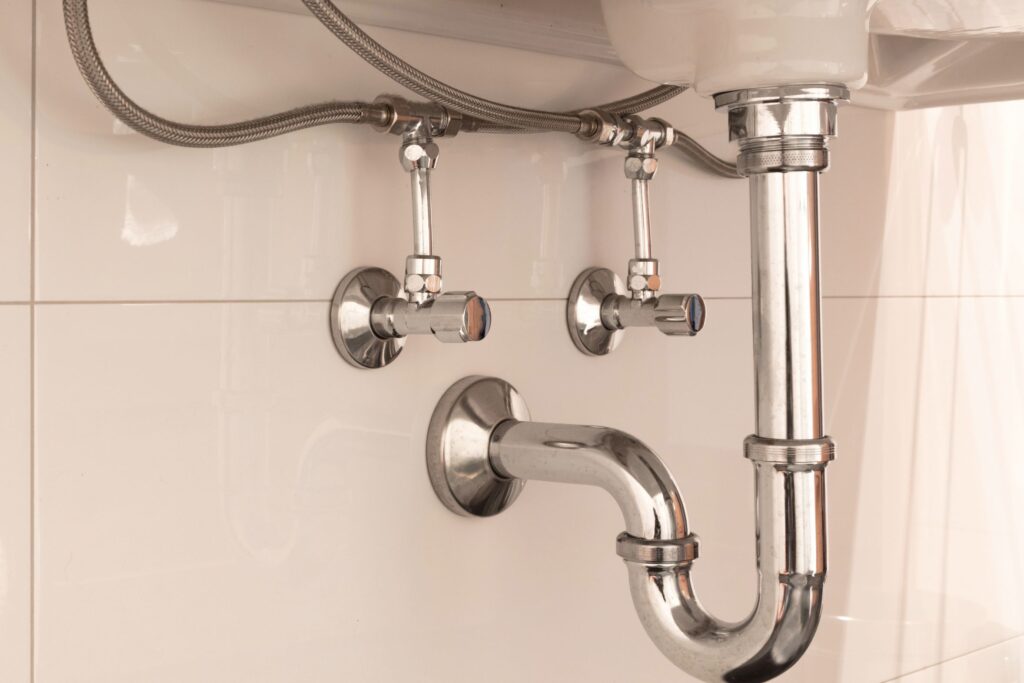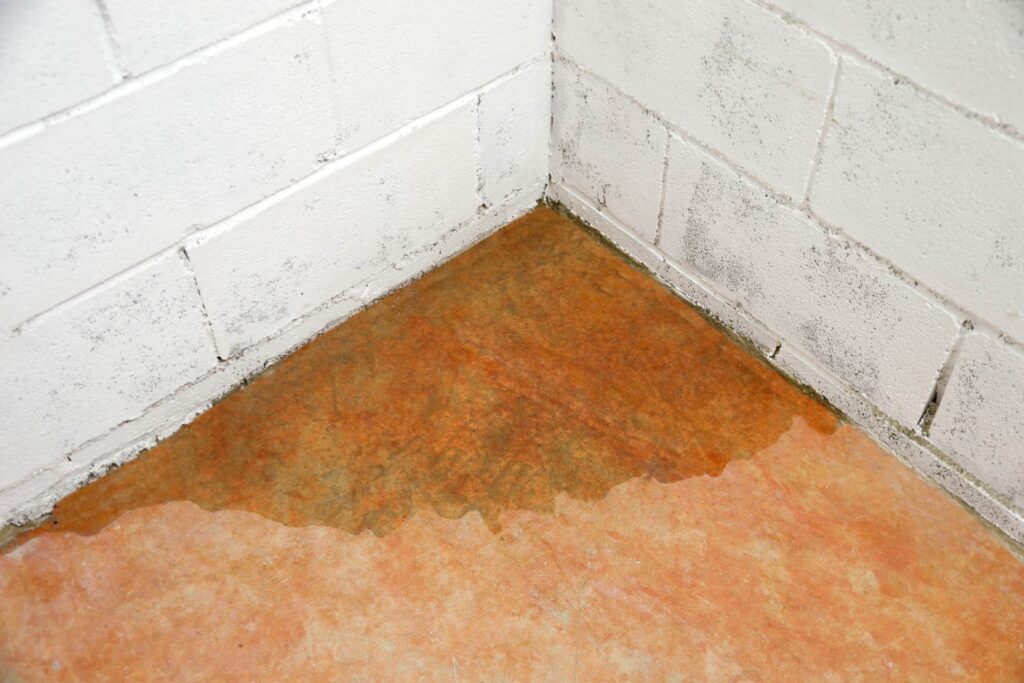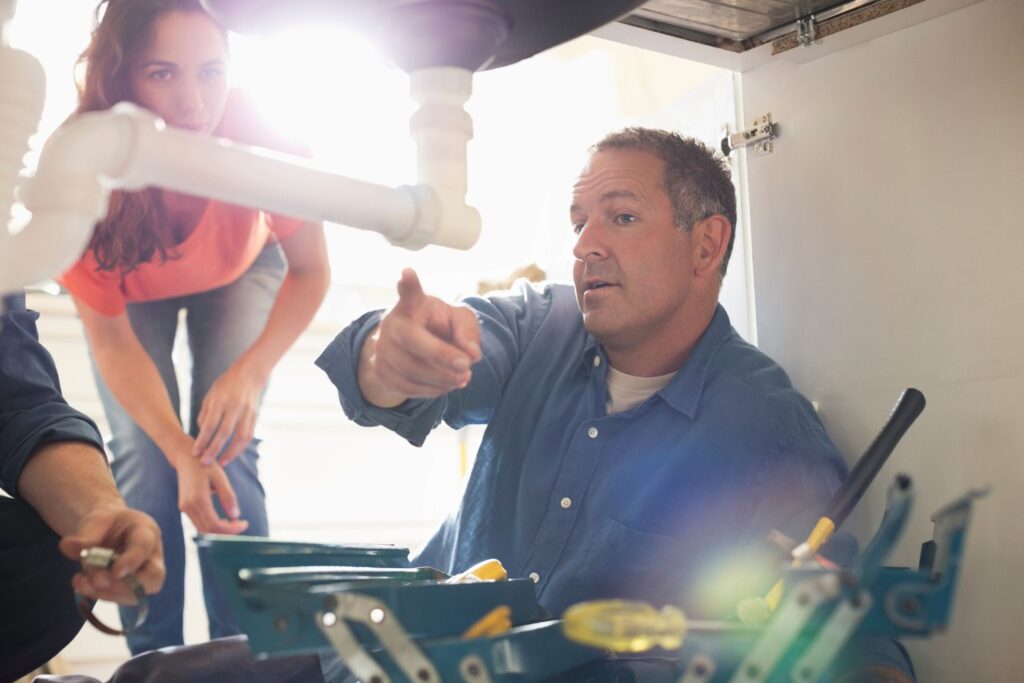Let’s be real. Sewage smells coming from your basement are never fun. Beyond the unpleasantness, it can be a sign of underlying plumbing problems that need your prompt attention. Today, we’re exploring the typical causes of sewage smells in the basement, offering DIY solutions, and outlining when it’s crucial to get a professional plumber involved.
So, whether you own your home or are renting, understanding these potential problems is key to safeguarding your property and maintaining a healthy living environment.
Typical Reasons Behind a Foul Basement Sewage Smell
1. Evaporated P-Traps

The U-shaped pipes, known as P-traps, located under sinks and drains, hold a small amount of water to block sewer gases from entering your home. If these drains are unused for a while, the water can evaporate, allowing the gases to escape.
2. Obstructed Drains
Drains can become blocked with substances like hair, grease, and soap over time. This buildup can lead to slow drainage and the proliferation of odor-producing bacteria. It may also hinder proper ventilation, causing gases to push back into the basement.
3. Main Sewer Line Issues
Problems with your main sewer line, such as cracks or blockages, can cause sewage to back up into your home. This not only brings a strong odor but can also cause significant damage and pose health threats.
4. Vent Pipe Problems
Vent pipes are meant to release sewer gases through your roof. Any blockage or damage to these pipes might cause gases to accumulate within the plumbing system and seep into your basement.
5. Inadequate Basement Sealing
External factors like rising groundwater levels can cause odors to penetrate your basement if it’s not properly sealed. Structural defects or foundation cracks make this more likely.
Solving Sewage Smells in the Basement
1. Maintain Water in P-Traps
Regularly running water through seldom-used drains will keep the P-traps from drying out, effectively blocking odors from entering your home.
2. Unclog Drains
Try using a plunger or a plumber’s snake to clear any blockages. For more persistent clogs, consider using a combination of baking soda and vinegar. If the problem persists, you may need professional help.
3. Assess and Repair Sewer Lines
If you suspect issues with your sewer line, prompt action is crucial. A professional plumber can conduct a video inspection to pinpoint issues like tree root intrusion, blockages, or cracks and recommend the necessary repairs.
4. Assess Ventilation System
Ensure vent pipes are clear of any obstructions, such as debris or nest buildups. This task might involve roof work, so hiring a professional could be wise if you’re not comfortable with this kind of work.
5. Seal the Basement Properly

Inspect your basement for any signs of water ingress or cracks. Apply waterproof sealants and coatings to strengthen weak spots that could allow external odors to enter.
Knowing When to Bring in a Plumbing Expert for Sewage Smell Problems
While many issues causing bad smells in your basement can be tackled with DIY solutions, some situations necessitate professional plumbing services.
– Ongoing Smell: If you’ve exhausted basic remedies and the odor lingers, it’s definitely time to consult a plumber. They can uncover and fix problems that aren’t easily visible.
– Complex Plumbing Problems: Issues like cracked pipes, major blockages, or sewer line damage are complex and can cause serious property damage, requiring professional expertise.
– Concerns About Health and Safety: Sewage odors might signal the presence of harmful gases like methane and hydrogen sulfide. It’s essential not to risk your health—contact a professional for safety’s sake.
– Significant Renovations or Repairs: Large projects, such as replacing sections of sewer lines, should be performed by qualified professionals to ensure compliance with safety standards and regulations.

Quickly tackling the source of a sewage smell in your basement is vital to ensuring a safe and comfortable living space. By understanding common causes, you can effectively address the issue or know when it’s necessary to call in professional help. Whether it’s a matter of simply refilling a P-trap or handling more extensive sewer line repairs, taking the right action can save you time, stress, and potential hazards.
Your home is your haven, and taking proactive steps to avoid plumbing problems helps ensure a pleasant and healthy environment. Should you be uncertain about how to tackle a plumbing issue, don’t hesitate to contact the experts at New Albany Plumbing & Drain for peace of mind.
Here’s a list of our complete plumbing repair and maintenance services in New Albany, Ohio!
Call New Albany Plumbing & Drain for all your plumbing needs at (614) 245-3319, or schedule an appointment online now by clicking here!



